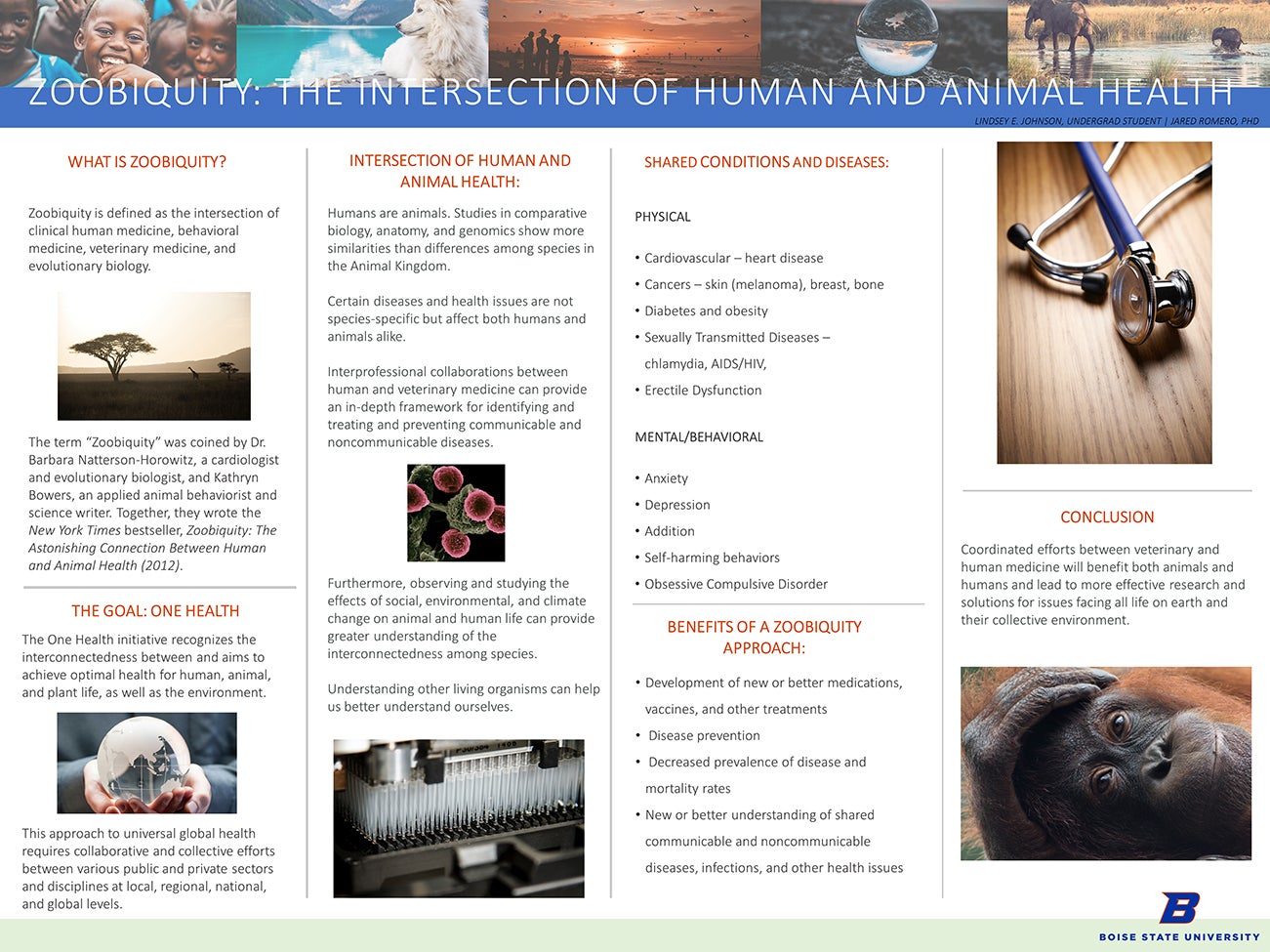
Lindsey Johnson, Dr. Jared Romero
What is Zoobiquity?
Zoobiquity is defined as the intersection of clinical human medicine, behavioral medicine, veterinary medicine, and evolutionary biology.
The term “Zoobiquity” was coined by Dr. Barbara Natterson-Horowitz, a cardiologist and evolutionary biologist, and Kathryn Bowers, an applied animal behaviorist and science writer. Together, they wrote the New York Times bestseller, Zoobiquity: The Astonishing Connection Between Human and Animal Health (2012).
The Goal: One Health
The One Health initiative recognizes the interconnectedness between and aims to achieve optimal health for human, animal, and plant life, as well as the environment.
This approach to universal global health requires collaborative and collective efforts between various public and private sectors and disciplines at local, regional, national, and global levels.
Intersection of Human and Animal Health:
Humans are animals. Studies in comparative biology, anatomy, and genomics show more similarities than differences among species in the Animal Kingdom.
Certain diseases and health issues are not species-specific but affect both humans and animals alike.
Interprofessional collaborations between human and veterinary medicine can provide an in-depth framework for identifying and treating and preventing communicable and noncommunicable diseases.
Furthermore, observing and studying the effects of social, environmental, and climate change on animal and human life can provide greater understanding of the interconnectedness among species.
Understanding other living organisms can help us better understand ourselves.
Shared Conditions and Diseases:
PHYSICAL
- Cardiovascular – heart disease
- Cancers – skin (melanoma), breast, bone
- Diabetes and obesity
- Sexually Transmitted Diseases – chlamydia, AIDS/HIV,
- Erectile Dysfunction
MENTAL/BEHAVIORAL
- Anxiety
- Depression
- Addiction
- Self-harming behaviors
- Obsessive Compulsive Disorder
Benefits of a Zoobiquity Approach:
- Development of new or better medications, vaccines, and other treatments
- Disease prevention
- Decreased prevalence of disease and mortality rates
- New or better understanding of shared communicable and noncommunicable diseases, infections, and other health issues
Conclusion
Coordinated efforts between veterinary and human medicine will benefit both animals and humans and lead to more effective research and solutions for issues facing all life on earth and their collective environment.
Additional Information
For questions or comments about this research, contact Lindsey Johnson at lindseyjohnson17@u.boisestate.edu.